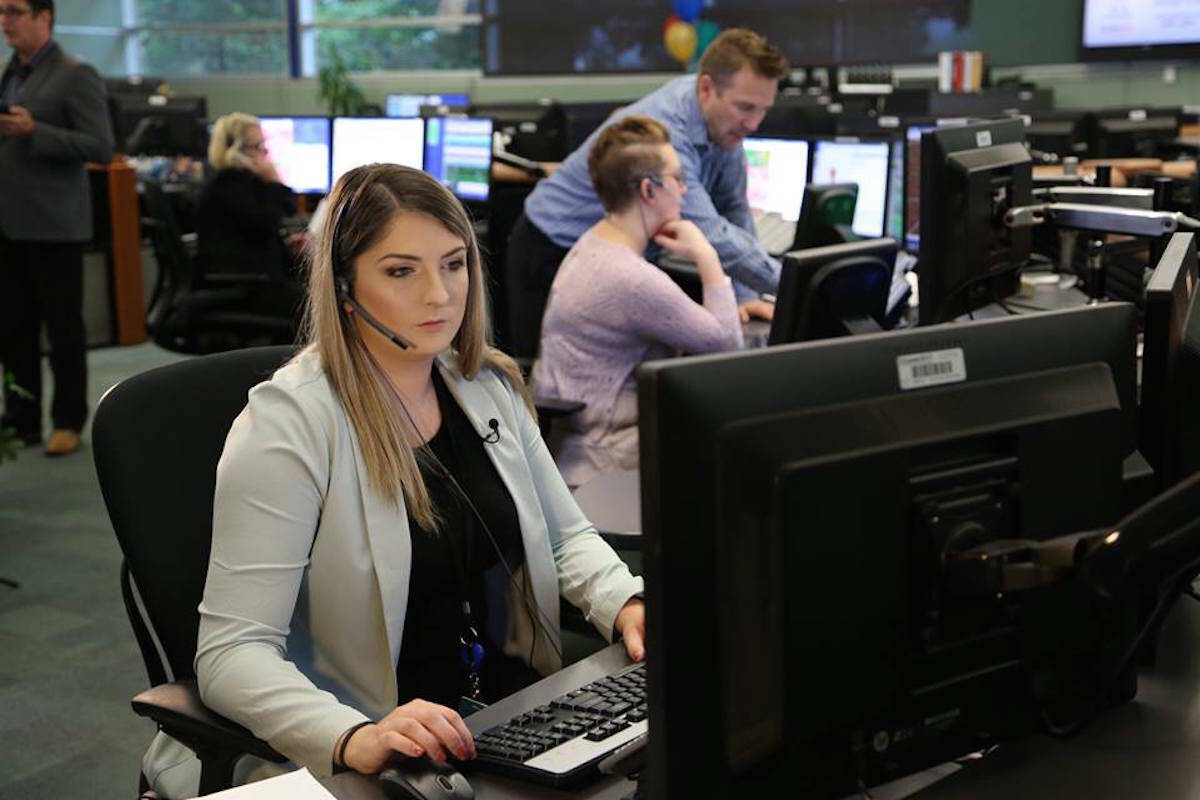Four out of 10 times, when someone tries to call in a non-emergency to the Vancouver Police Department, they are choosing to abandon their call.
It’s very likely not that they don’t wish to report the crime, tip or suspicious activity, but that they are having to wait up to hours to speak with an operator.
E-Comm, the third party service that answers 911 and non-emergency calls for police and fire departments in much of B.C., said in a statement wait times on non-emergency calls in the Lower Mainland are sometimes exceeding two hours.
In Q1 2022, 40.5 per cent of non-emergency calls to VPD were abandoned, marking a significant increase over the 24.7 per cent abandoned during the same period in 2021.
VPD media relations officer Sgt. Steve Addison said the situation has created a public safety issue. Every call unanswered is a possible crime slipping through the cracks, he said.
Non-emergency calls are ones that don’t require immediate police presence, such as reporting a theft, fraud or break-in where the suspect is no longer at the scene, reporting a serious crime that happened in the past, reporting graffiti or drug dealing, or making a noise complaint.
Addison said investigating smaller scale crimes can be vital to connecting the dots on larger issues. It’s also a service Vancouver residents are paying for.
READ ALSO: New 911 system aims to increase number of calls E-Comm operators can take
E-Comm told Black Press Media the issue lies with a lack of funding, which has left it understaffed. It added it’s seeing higher call volumes and longer call times, and that an increasing number of staff are going on stress leave.
It said it’s looking at new call-handling methods, such as an automated system, increasing online reporting, and recruiting and retaining more staff. It’s also working on educating people on what matters should be reported elsewhere, as E-Comm estimates 40 per cent of non-emergency calls need to be redirected.
The agency made a large change to its emergency line in December 2021 when it started directing operators to drop calls with people waiting for an ambulance once the request goes through. Prior to the change, operators would stay on the line until the caller was connected with B.C. Emergency Health Services.
Freeing up more time on the emergency end should in theory shorten wait times on the non-emergency end, but E-Comm said people shouldn’t expect to see improvements in the near future.
The summer months are the busiest, E-Comm said, and it will continue to prioritize 911 calls over non-emergency ones. Both types are at risk of dangerously long waits.
READ ALSO: B.C. man, 72, dies in home while family waits on hold with 911 dispatch
READ ALSO: Ambulance response times in question after B.C. woman waits 1 hour with broken hip
@janeskrypnek
jane.skrypnek@bpdigital.ca
Like us on Facebook and follow us on Twitter.

